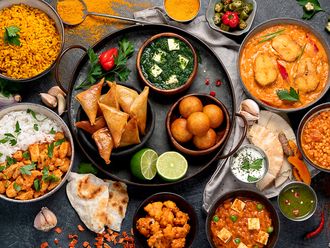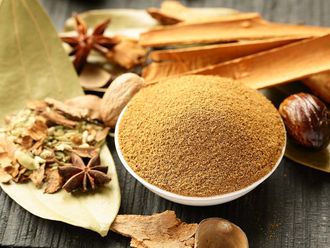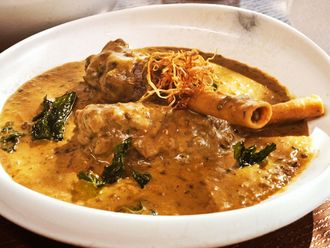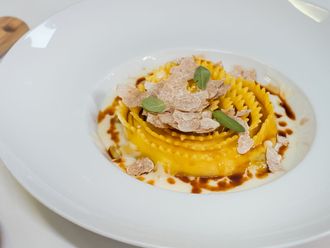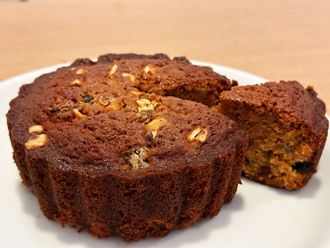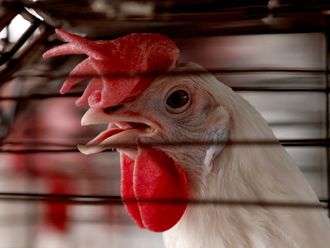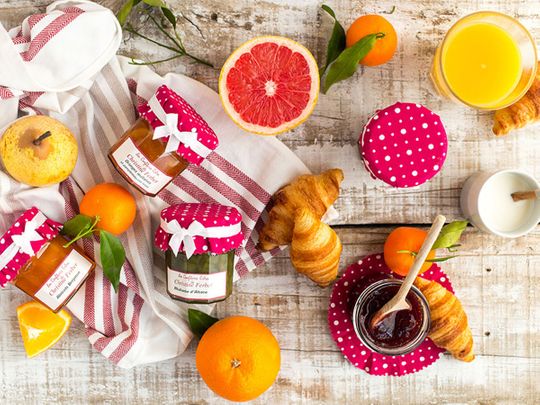
Fine dining is usually associated with top restaurants, but there is a breed of home cooks in the UAE, who practise it in their kitchens.
And the first step to that is sourcing ingredients that are not off supermarket shelves. So, how do these home chefs solve this dilemma?
Enter one of Dubai’s best-kept secrets - Secretsfinefood.com, by 49-year-old Dubai resident Stephanie Duriez.
Driven by a similar need to cook elevated cuisine, in 2013, Duriez, who is from France, channelled her passion for fine food and a search for luxury products to launch an online store.
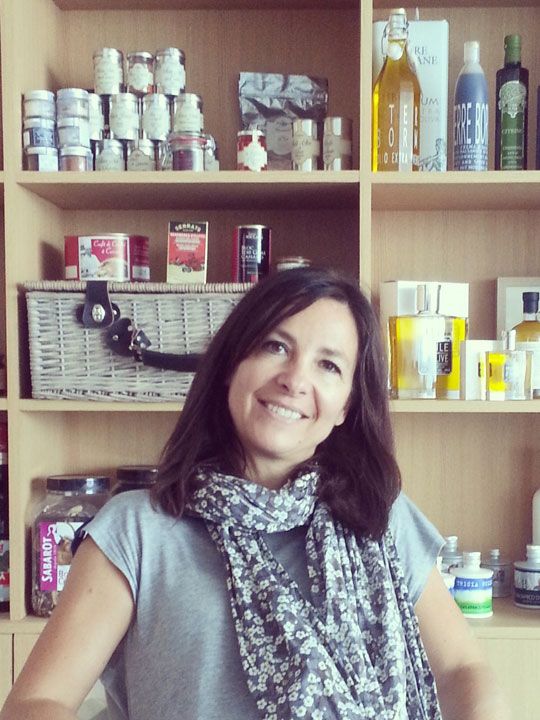
She told gulfnews.com: “In 2013, there was a dearth of artisan food in the UAE. Being food conscious and a mother of two young children, I was looking for taste and health. In other words, I was craving authentic, natural products such as free-range chicken, normal shelf-life free-range eggs, or good farm cheeses from France or Italy.”
A few years down the line since that quest, Secrets now stocks almost every hard-to-track-down ingredient you might ever want. There’s Japanese and Korean condiments (yes, miso and gochujang chilly). There’s British marmalades and chutneys, Indian pickles, harissa paste from Tunisia, Italian delicate butters, puff pastry from France, shrimps from Madagascar, caviar from the Caspian Sea and anchovies from Spain. Blackberry puree from Serbia, banana puree from Ecuador. Closer home, there’s also organic produce from the UAE, from kale to celery.
“These products are unique,” Duriez said. “They are the work of artisans and craftspeople; masters in their own field. They are limited in quantity, and are all to be found in the best terroirs [the natural environment which gives a food its unique characteristics]. They are the choicest varieties, traditionally produced, and are cultivated in remote areas.”
Slow start, word-of-mouth wins
Like all businesses, Secrets took a while to take off.
“The demand was there for fine foods,” says Stephanie, “but the difficulty was to get the company known and to convince people to buy food online, which was a true challenge at that time. Remember, we were in 2013, and it was the start of e-commerce in the region. Nothing like this online boom now.”
Stephanie continued to push through, counteracting the apprehensiveness about revealing credit card information online by a cash-on-delivery system.
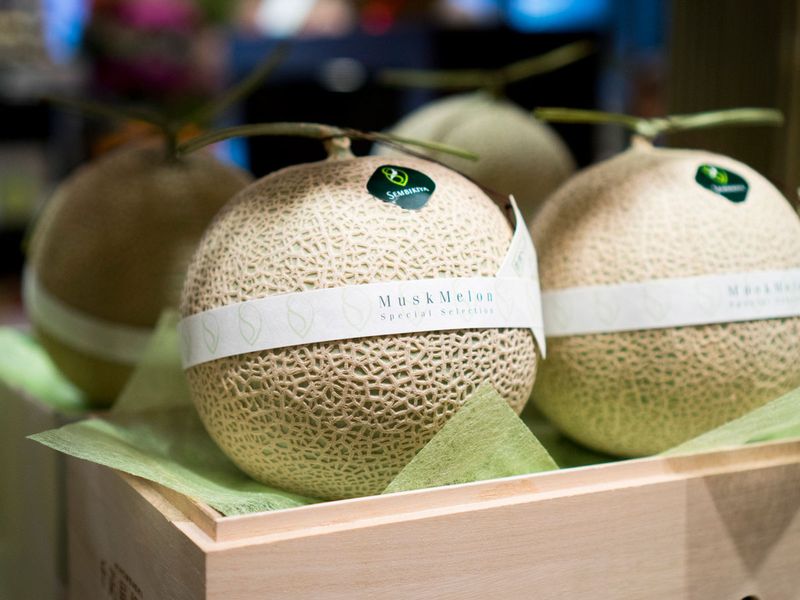
Soon Secrets Fine Food was seeing constant growth year on year, thanks to word of mouth, and the company’s huge focus on quality. “I would personally meet my suppliers, because the products are cultivated in remote areas, serving very high quality and taste. I operated on a complete transparency in terms of origin of our products.”
A pandemic boom
Then COVID-19 happened. But in a strange twist, unlike the many businesses that were decimated globally, the demand for her products not just continued, they saw an upturn. “I noticed an important surge in demand starting from March 2020 onwards. Firstly, people were looking for reliable home delivery services. Then, I noticed a real rise in food consciousness, in home cooking. The crisis seems to be an eye-opener for many people about the importance of the quality of food, the importance of selecting natural and healthy products, and non-processed ones. One of the positive sides of it all is the reconnection with our health and body and with our environment. People are re-experiencing and enjoying the pleasure and satisfaction of home cooking for their loved ones.”
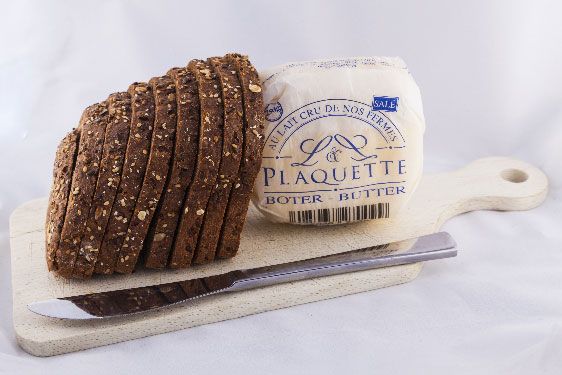
Stephanie is quick to stress a difference between artisan food and luxury food. “Artisan relates more to food products produced naturally, in small batches, in small farms by artisans dedicated with passion to their work in opposition with industrially processed food. Artisan food products are made without preservative, without colouring, without antibiotic or taste exhauster, basically with the least transformation possible. This food is not necessarily luxury as it can be consumed on a daily basis and remains affordable in terms of price, although higher than any products found in supermarkets.
“As far as luxury food is concerned, to me it deals with food that one eats occasionally for special celebrations because it is rare, deliciously amazing, super exclusive, very seasonal or difficult to find - such as Japanese wagyu beef, Bresse poultry, white strawberries or Beluga caviar.
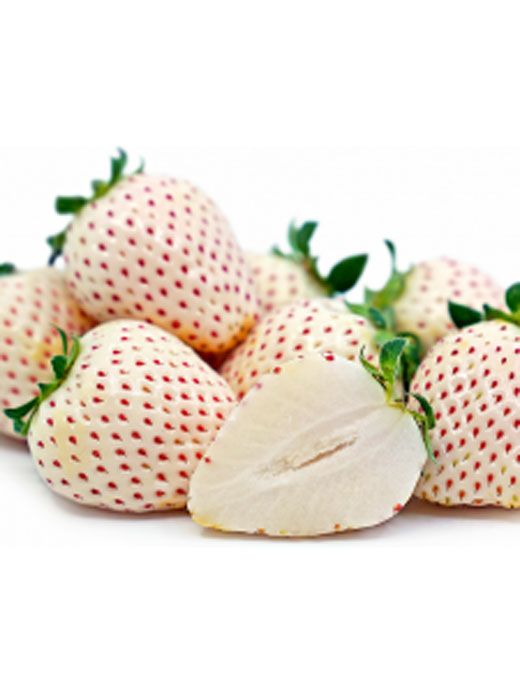
“Both categories seem to have benefited from the crisis due to people travelling less frequently or eating less often in restaurants than before.
Stephanie also started noticing an increasing demand for vegetarian and vegan options. “More and more people are interested in those diets and great improvements have been done in recipes and dressings. You can have amazing food experiences without animal proteins. There’s also gluten-free ….”
Novel avenues
The pandemic also offered Duriez a new option.
“During the peak of the COVID-19 crisis, I was seeing on Instagram all those Parisian artisans and pastry chefs who were desperate, being forced to close their restaurants and cafes. I decided to contact them and offered them the opportunity to collaborate.
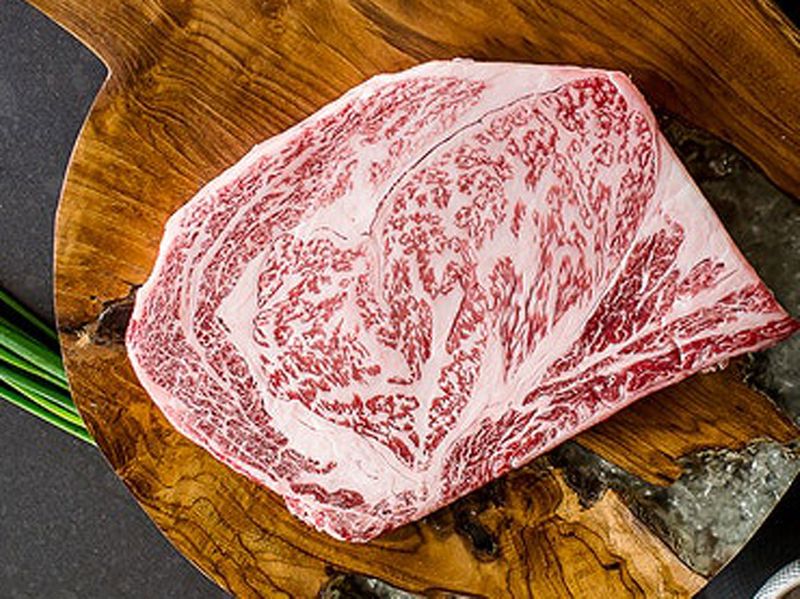
“And that’s the story behind the fantastic eclairs and chocolate we now sell, Bars by L’eclair de Genie by Christophe Adam, the famous French pastry chef. I am not sure it would have happened out of the COVID context.”
So, what exactly does a UAE fine food home cook seek out?
“Definitely quality - quality of taste, quality of the origin of the product, quality of the components and ingredients. Consumers are looking for genuine products more and more, for very fresh perishables and fishes, for non-processed ingredients, for food directly sourced from the farm or the market.
“For obvious reasons, people will first select what Nature cannot offer locally. For this reason, beef meat and particularly Wagyu beef is the first choice. Our consumers are quite discerning when it comes to taste. Their choice is concentrated on prime cuts. Our free-range organic poultry is also very much in demand.”
“We mainly cater to families. We either serve consumers for their weekly needs with classic, natural, basic ingredients and/or we serve our clientele when they have parties and entertain at home.”
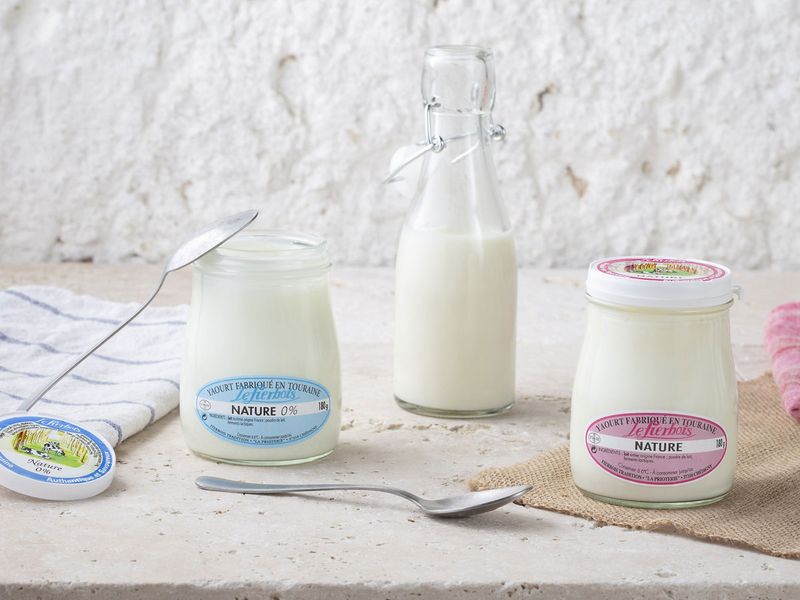
UAE farms
She is looking to work more and more with small producers focussed on quality, rather than quantity.
“I have visited a few farms in Southern Belgium, vallee d’Hendaye, and I have been impressed by the preserved countryside, small/medium scale agricultural organisations and the genuine products. So with them I registered amazing raw farm butters and foie grass.”
The UAE’s organic produce sector falls into this plan too. “As soon as the COVID crisis started, I approached a local organic fruits and vegetable producer who I respect a lot for her dedication and commitment to the production of genuine organic food in the UAE. My objective was first to propose a local and organic solution to our customers, and also to support her initiative. I believe we should develop more and more qualitative local solutions - to reduce the carbon footprint, but also to encourage national food safety.”
Read on for three delicious recipes using artisan products from Secrets Fine Food (plus a Middle Eastern recipe to preserve lemons).
TAPAS ANCHOVIES ON MOZZARELLA TOASTS
Serves 4
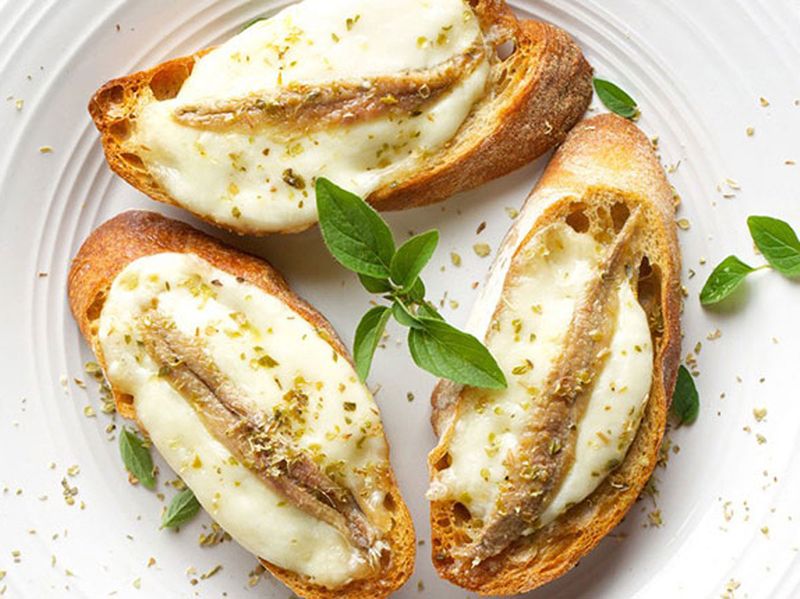
Ingredients
• 4 pieces chilled anchovies
• 4 fresh bread slices
• 1 mozzarella ball
• 4 fresh basil leaves
• A few pinches of basil powder
Method
1. Slice the bread and mozzarella ball.
2. Place a slice of mozzarella on each slice of bread.
3. Place an anchovy on top and sparkle a bit of basil powder.
4. Place in oven for a few minutes to make the mozzarella melt.
5. Decorate with a fresh leaf of basil.
LOBSTER WITH MANGO AND YUZU SAUCE
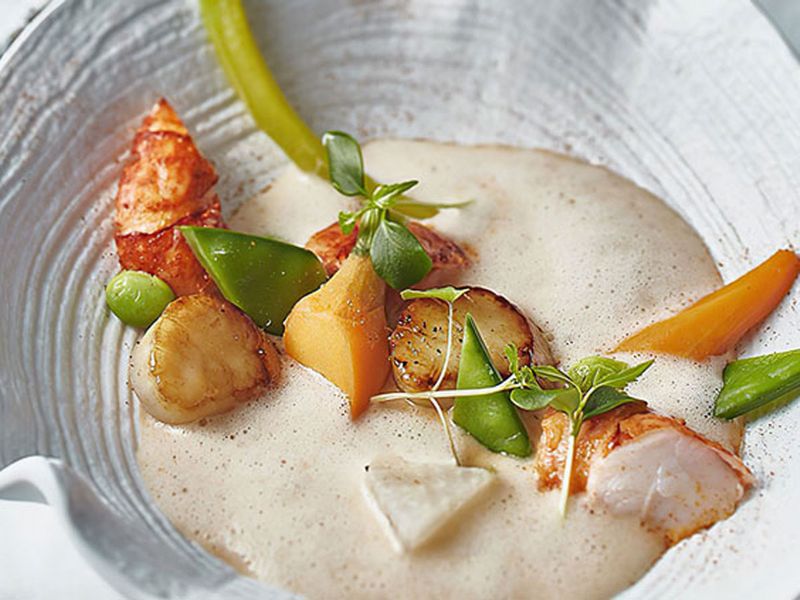
Serves 6
Prep time: 30 mins
Ingredients
• 3 pieces of lobster (you can use the frozen lobster with claw already peeled off) or fresh
• 1 piece of mango
• 6 avocados
• 4 tbsp yuzu pearls (If unavailable, substitute with 3 tablespoons fresh lime juice and 1/2 tablespoon fresh orange juice)
• Juice of 3 limes
• 1 bunch of coriander, chopped
• 3 tbsp olive oil
• 3 tbsp passion fruit vinegar
• 1 tsp Espelette chili pepper (if unavailable, substitute with sweet paprika or smoked paprika)
• Mizuna or Japanese mustard leaves (milder than arugula)
• 1 punnet edible flower
Method
1. Defreeze the frozen vacuum pack lobster tail and claws. Boil them in hot water for 10-15 minutes or until cooked, and cut the lobster claws into small pieces. Keep in room temperature.
2. Cut the mango and avocados into small dices.
3. Sauce preparation: Put the mango in a bowl. Add the yuzu pearls, 2 avocados, juice of one lime, and chopped coriander, olive oil, passion fruit vinegar and season with salt and pepper. Mix well, cover, and chill in the fridge for at least 30 minutes.
4. Avocado cream: Blend 4 avocados with juice of 2 limes, salt and pepper, and keep in the fridge.
5. For the dressing: Pour the avocado cream, about 1 tbsp on each plate, slice the lobster, place the lobster on top of the avocado cream, add the sauce preparation on top of the lobster and decorate with a pinch of mizuna salad and edible flowers. Serve very cold.
PAVLOVA WITH RASPBERRIES
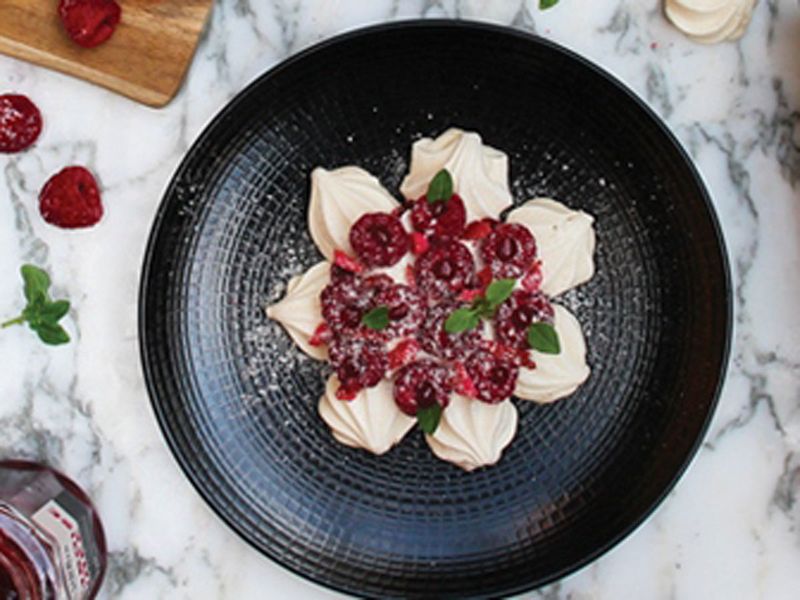
Ingredients
• Seedless raspberry jam from France
• Swiss meringues
• 1/2 vanilla pod
• Bordier liquid cream
• Bordier thick cream
• 1 punnet of raspberries
• Fresh basil
• 1 yellow lemon
Method
1. Draw a circle of raspberry jam on each plate. Place a few meringues over the circle.
2. Prepare the Chantilly cream: stir the vanilla in the cream and mix to get a smooth Chantilly.
3. Place spikes of Chantilly cream on each meringue and in the circle.
4. Garnish the raspberries with jam and place on the plate.
5. Chop the basil, shred the lemon and crush raspberries on top of the pavlova.
MIDDLE-EASTERN RECIPE TO PRESERVE LEMONS
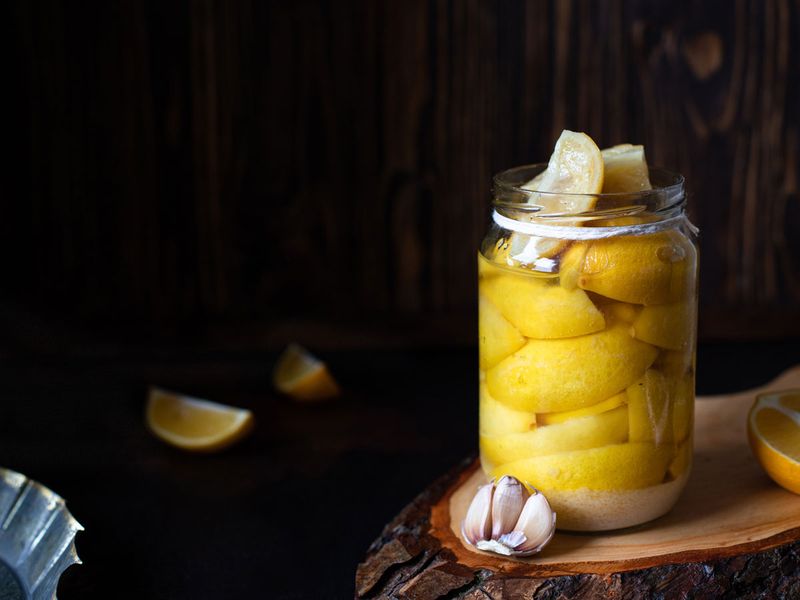
For 1 jar of 500ml
Ingredients
• Untreated lemons
• 4 large tbsp of coarse salt
• 2 garlic cloves
• 2 small bird's-eye chillies
• 6 whole cloves
• 1 tsp of coriander seeds
• 1 tsp of Sichuan pepper
Method
1. Rinse the lemons and make a cross incision on the skin without detaching the quarters, so that they can open like a flower.
2. Divide the salt among the lemons, put them in the jar with all the ingredients, cover with water, close and leave it in the fridge for at least three weeks.
Tell us about your favourite dishes or recipes at food@gulfnews.com



